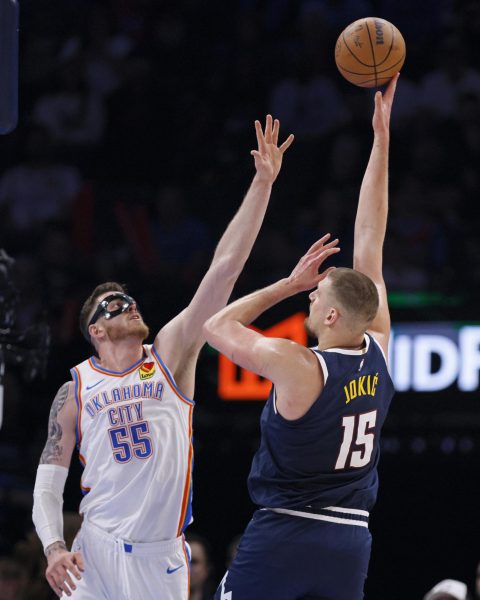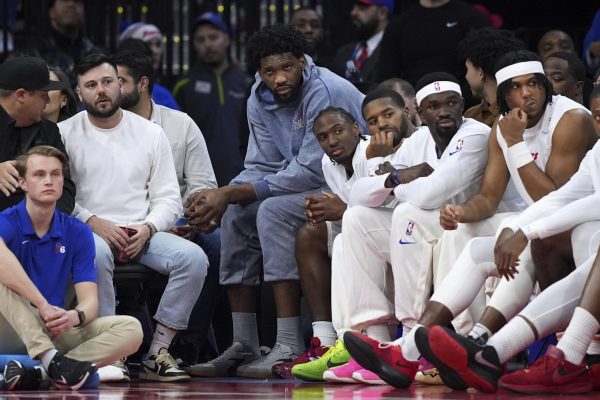Alex Jones and Social Media: Being Right
Few people in academic circles such as ours would argue that the string of insane, hyperbolic and viciously derogatory rhetoric that Jones spews is constructive or worthwhile. I do not watch Alex Jones; I do not enjoy Alex Jones; I do not like Alex Jones. But I will say, without a moment of hesitation or a shred of doubt, that Alex Jones has an inalienable right to speak his mind –– regardless of whether or not I or anyone else disagrees with it. The country’s largest social media platforms disagree. On August 7, over the span of 24 hours, a unified front of various tech giants banned Jones from their platforms, including Apple, Facebook, Youtube, Twitter and Spotify. Statements from all companies involved were universal in claiming that Jones had proliferated hate speech in violation of their terms of service.
This column isn’t going to concern itself about whether those companies constitute public domain, but instead the practicality and ethics of their actions. The big question is one that’s often asked but rarely answered: What exactly is hate speech? Everyone can agree that calling for genocide or murder based on race or religion is hate speech (and is also illegal under U.S. codes for incitement to commit a crime). But is the kind of low-quality and offensive rhetoric spewed by figures like Alex Jones really “hate speech” worth bans and sentencing? If so, how is hate speech defined? Repetition of stereotypes? Uncouth tackling of touchy issues? Anything constituted as offensive in the court of public opinion?
The problem with hate speech is that it’s impossible to decide where speech suddenly stops being “acceptable”; we have a hard time doing it even in our personal lives. While conceivable at an abstract level, the reach of hate speech into free speech is inherently nebulous; we can even use someone like Alex Jones as an example. By claiming Jones engages in hate speech, the line is drawn definitely at him. The only direction that that law can take is to expand – and, as many governments have already discovered, regulations on nebulous speech laws are an astoundingly good tool for silencing dissidents and rebels.
That isn’t to say that these companies didn’t have very good reasons for banning Jones. He’s a thuggish charlatan at best and a quasi-racist conspiracy-monger at worst, and the fact that Jones’ show is so widely watched represents a serious problem with contemporary American culture. But banning figures like Jones from public forums doesn’t actually address the issue of why people are listening to figures like Jones. When figures like Jones rant incomprehensibly with poorly-collected evidence and intentionally misinterpreted emails about “pizzagate,” causing someone to shoot up a children’s pizza parlor in the delusion that it harbored a pedophile ring, you can’t just take Jones off the air and declare the problem solved. Banning Jones from speaking means absolutely nothing if you fail to address the faction of people who’d bring a rifle into a pizza parlor based off low-quality JPGs.
Let’s step away from the impregnable nature of hate speech/free speech. Alex Jones gets his grit –– and inspires men like the pizzagate shooter –– based on perceptions, real or false, of fact-checking sites like Politifact and major news networks from CNN to Fox becoming increasingly partisan and corrupt in recent years. All Youtube has managed to do in outright banning Jones is further convince his audience that Youtube is corrupt and oppressive; no one who watches Alex Jones is going to stop whether he’s posting from Youtube, Dailymotion or a prison cell if they still believe him to be morally justified.
The question to be asked here is one of logic versus emotion. It feels good to see an unintelligent and racist bully like Alex Jones not get his way, but does it actually convince anyone to stop watching him? Does it convince his audience that Jones is wrong? Does it restore faith in mainstream media outlets and fact-checking sources? Most importantly, is it going to stop Jones from spawning a second pizzagate shooter with his offensive and outlandish conspiracies?
If social media sites and major media-sharing platforms are going to act like public platforms, they need to assume the responsibilities of them as well. It can’t be stated enough that Alex Jones is a very real, very genuine issue with our culture and politics. But it also can’t be stated enough that free speech cannot have terms and conditions; especially not those imposed at the behest of corporate meetings. Youtube’s ban won’t get rid of Alex Jones; he was on front pages less than a month after his ban for confronting Marco Rubio. All they’ve done is add fuel to the fire burning under American democracy.
Contact Max Goldenberg at mgoldenberg@colgate.edu.






